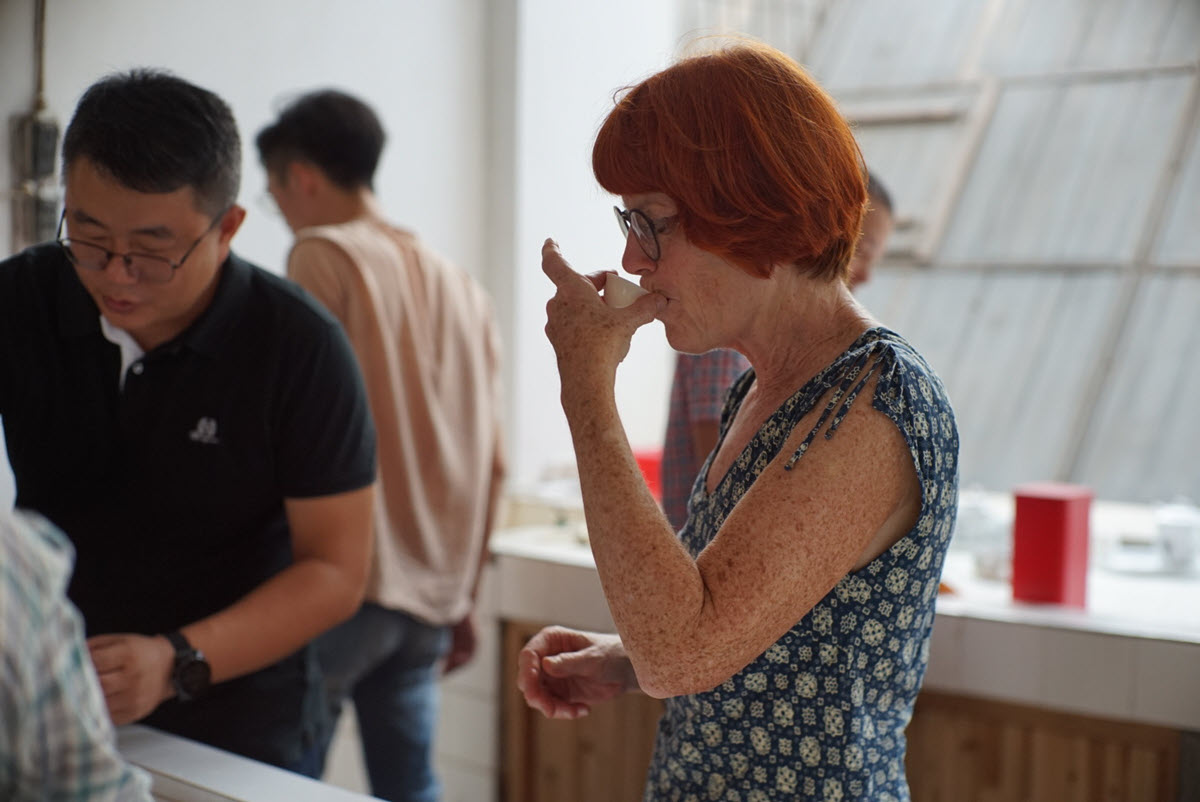
A Life Devoted to Asia
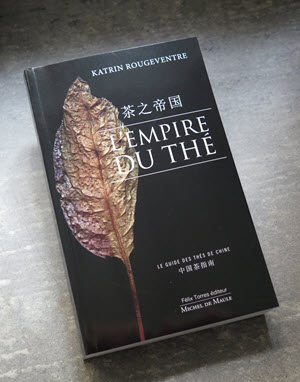
Katrin Rougeventre’s journey is a singular one. It has taken her from the iced tea of her childhood to the selection of the finest Chinese teas available on the European market; She is now France’s leading expert on Chinese tea. Her journey began in Indonesia in the 1960s, then took her to the University of Nanjing in the early 1980s, where she defended her thesis on Chinese tea culture, establishing the first translation of Chinese tea vocabulary into French. Among all the great French tea experts, what distinguishes Katrin is undoubtedly her roots in Asia, to the point that she feels more Peranakan* than French. It is there that her entire gustatory and sensory training took place. She is passionate about tea and Chinese culture and has contributed to its diffusion in Europe. She is the author of the reference book on Chinese tea, The Empire of Tea, released in 2017 and reissued in 2022, a tea bible for professionals and amateurs.
The foundations: from Indonesia to China
Katrin spent her early childhood with her family in Indonesia, first in Sumatra, then on the island of Java, and in Jakarta, where her father worked on large infrastructure construction sites. His career would take them to other countries, but Indonesia left a lasting impression. She described a happy expatriate childhood, where the school and workday began early and ended at the seaside club, where the adults played bridge. At the same time, the children enjoyed themselves under the care of babus (nannies). At the club, they collected empty bottles of Johnny Walker to chill the tea they had prepared. As a result, Katrin began drinking tea at an early age. In Indonesia, brewing tea is the surest way to ensure that the water has been boiled and is safely drinkable.
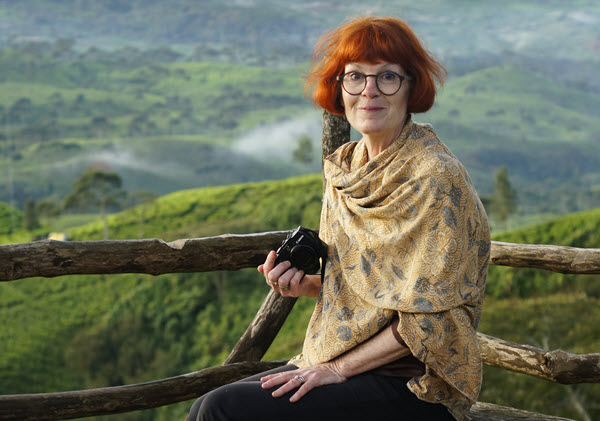
It wasn’t until she was 30 that she returned to Indonesia and realized how much those early years had meant to her and how much they had rooted her in Asia. Her entire sensory memory was formed; there, she experienced the peace of the temples with their ubiquitous red color and candles and the feeling of belonging to a Chinese community. Many of her parent’s friends were not native Indonesians but from the Chinese diaspora, and she has unconsciously imbibed their culture and atmosphere. Despite subsequent expatriations to Turkey, Iraq, Gabon, and the United States, it is in Asia, in this Chinese community, that she was forged.
Return to Asia
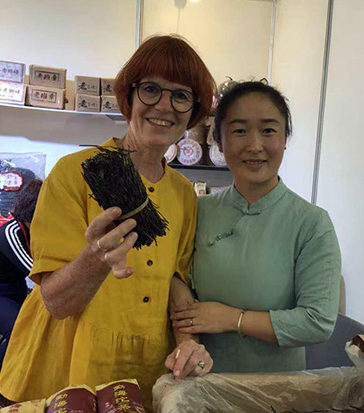
When Katrin returned to France, she was 17 years old. She enrolled in INALCO (Institut National des Langues et Civilisations Orientales), and since Indonesian was not taught there, she opted for Chinese. She felt an ever-growing urge to return to Asia. She was fascinated by China. She first revisited her Asian roots in Taiwan, where she spent a year. A frustrating experience, she admits, because, despite her calligraphy and Tai Chi classes, it wasn’t China as she imagined it. The following year, she went to China and was careful to choose a place where the weather was not too cold. She chose Nanjing rather than Beijing for its climate. But to attend a Chinese university, she had to obtain a scholarship and therefore have a research topic that justified her stay.
At the time, classical literature was analyzed through the prism of Marxist-Leninist interpretation, and modern literature was irrevocably political. Not at all, Katrin’s cup of tea! She first considered comparing Chinese and Native American mythologies underpinned by Chinese migration to America. But the head of the scholarship department dissuaded her and steered her towards an economic subject whose concrete applications would be more likely to interest the Chinese government. She had always loved geography, and Professor Pierre Trolliet’s lectures on the regions of China, which he illustrated with regional products, fascinated her. It was a bottle of tea seed oil brought by the professor that finally decided on her memoir topic: he regretted that none of his students had yet studied tea. Katrin only knew tea from the Johnny Walker bottles of her childhood, but she decided to go for it! She would therefore learn Chinese tea and the prospects of economic exchanges with France.
China at last!
In 1982, Mao had been dead for six years, Deng Xiaoping had just launched a liberalization campaign, and the country was beginning to open up. Katrin arrived at the University of Nanjing, where she would spend two years. While there was a large community of Japanese and German students, there were only four French students, all of whom had received scholarships from the Chinese government, unlike the other international students who also received scholarships from their home countries. Katrin would therefore live the Chinese way with her local wage. She discovered this post-Maoist China in which one cannot leave the university and visit plantations without authorization. Her inquisitive mind and desire to explore and make the most of this stay played tricks on her several times. Unable to resist the lure of all that there was to discover, especially the sensitive areas where minorities lived, she was caught several times, risking expulsion and escaping at the cost of long self-criticism sessions that forever inoculated her against the communist regimes. Only later, when she resumed Chinese classes, she became aware of having lived within a particular period.
One could imagine these two years as many occasions of dazzling discoveries linked with teas… But China had so many mouths to feed that tea wasn’t yet a part of the axes of development of agricultural planning. It would take 20 more years. In the meantime, Katrin was drinking ordinary green tea from the Nanjing area and doing the necessary research for her thesis. As a Chinese language student, a neophyte in all things tea and agronomy, she had to learn about everything: soil types, climatology, botany, and tea growing. She spent months on agronomy books in Chinese without the help of any dictionary. This extended work was punctuated by illuminations, which often turned out to be wrong, and she had to start all over again. But it took more than that to discourage her.
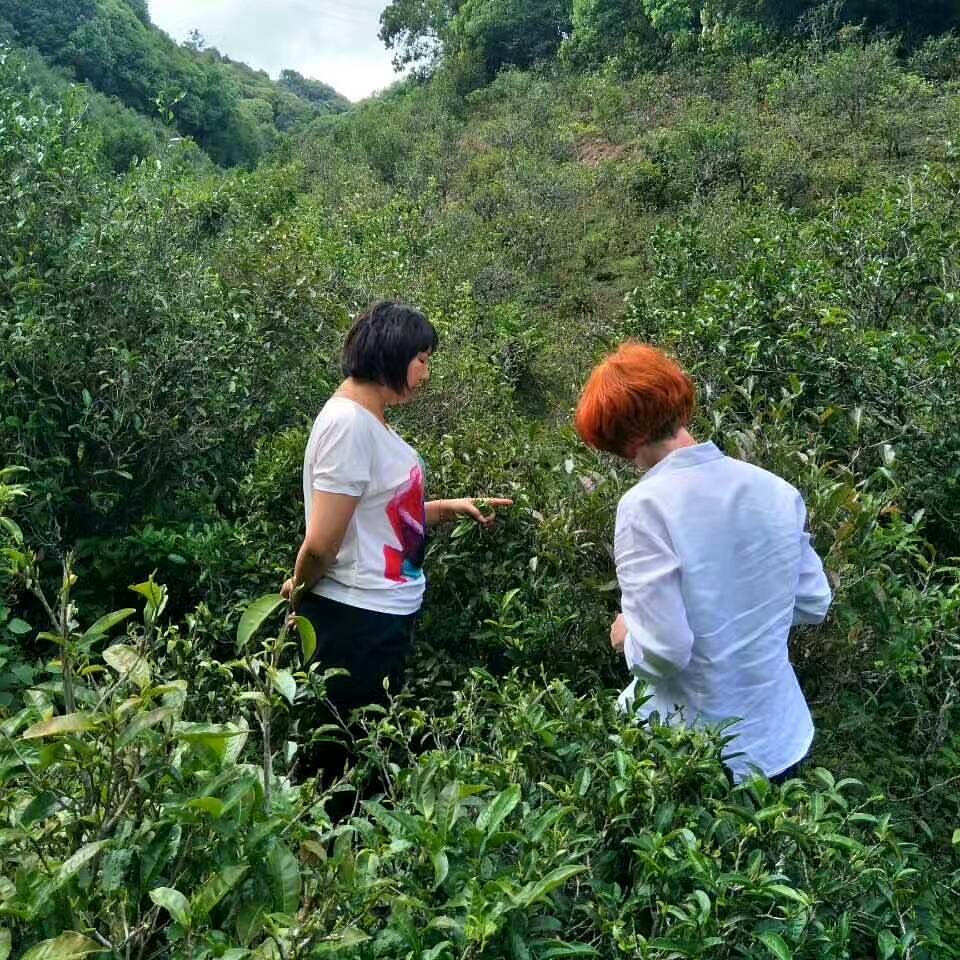
Katrin devoured, deciphered, and moved forward, relentlessly gathering the elements necessary to write her memoir. She also visited plantations, even if many of them were in disarray. The very first one was the one of Long Jing or Dragon Well near Hangzhou. To know where to go, she bought everything she could find on Chinese plantations, including tourist guides. The tea route is linked to Buddhism and Taoism since the monks were the first to adopt it as a daily drink, then as a ritual drink. So when we say temple and sacred mountain, we also say plantation: most of these places were open to tourism and could be visited.
Return to France
Back in France, her research work continued. She spent a year researching oil plants, coffee, cocoa, and tea in British archives in India. She finally found the vocabulary she needed in English, Bengali, and Indonesian. She decided to promote a Chinese vocabulary for everything related to tea, thus establishing the basis of the tea vocabulary used in France today.
At the end of her studies, she became one of the collaborators of the travel agency Carrefour de la Chine, which later split into two distinct entities, Voyageurs du Monde and La Maison de la Chine. She joined the latter with the mission of creating and managing the tea house, purchasing local goods, and defining the cultural agenda. The organization of these events, forums, and conferences allowed her to be in contact with professors and satisfied her immense intellectual curiosity. The purchases permitted her to make frequent extended stays in China, during which she unearthed antique furniture and objects, pottery, Yi Xing teapots, and other treasures at the small second-hand markets of Beijing. She knew the merchants well, who, between each stay, collected anything likely to be of interest to her. In these lots at very attractive prices, there were some very good, some good, some not so good, some improbable, and everyone found his interest there. She brought back her treasures in a rickshaw, carrying her heterogeneous cargo securely to her hotel to avoid losing anything. She stored in her room the furniture and the old trunks in which she arranged the dishes and the objects. A resourceful master, she took care of the expedition, the reception, and customs clearance at Roissy. On the vast median strip of the Beijing airport, Katrin packed and taped her acquisitions next to the Soviets who had come to raid the Chinese free markets, packing their goods in blue-white-red bags. A jubilant period for her! A chance meeting at an event in her cultural agenda made her cross paths with François-Xavier Delmas, the founder of the French tea house Le Palais des thés, who offered her to join his team. She accepted and embarked on a new adventure that would last three years. She created a thematic cultural agenda around tea to decorate the stores, with the collaboration of a Parisian specialist in Asian furniture and decoration. But she missed traveling, so she decided to fly on her own.
A friend of the planters
From when she started working in China as a student in 1982 to the present day, 40 years have passed. Over 40 years, she has established privileged relationships with planters in various regions. Her knowledge of all the regions of China has earned her respect and recognition among growers who often have not traveled outside their region. These growers consider Katrin to be the leading expert on Chinese tea, and they willingly share their knowledge with her. When she travels, Katrin takes her time, usually spending three weeks in each region. She stays with her planter friends and experiences their daily life in the villages. She doesn’t need organic labels because she knows their gardens and knows that they are healthy. It is also where they grow the vegetables they eat. Everything is done by hand, from the harvesting to the shaping. For her, the quality of the tea is, of course, fundamental, but it goes hand in hand with the quality of the people. No matter how extraordinary, she will never take tea if she does not trust the producer: a factor that is all the more important today when China is closed, and one has to work at a distance. Price is also a factor, as the European market has a lower limit than the Chinese market, where the most expensive teas are often given as gifts.
Katrin’s selection differs from the big houses that source their teas from large exporting companies. It is that of a palate that has been formed in China by contact with the tea consumed by the Chinese, of someone keen to share a culture that she loves deeply and feels a sense of belonging. The small quantities induced by the niche market she supplies give her total freedom of choice. And because she is at the source, she can provide her clients with all the information they need to communicate transparently. They are about twenty professionals with demanding customers in France, Belgium, Italy, and Spain who trust her.
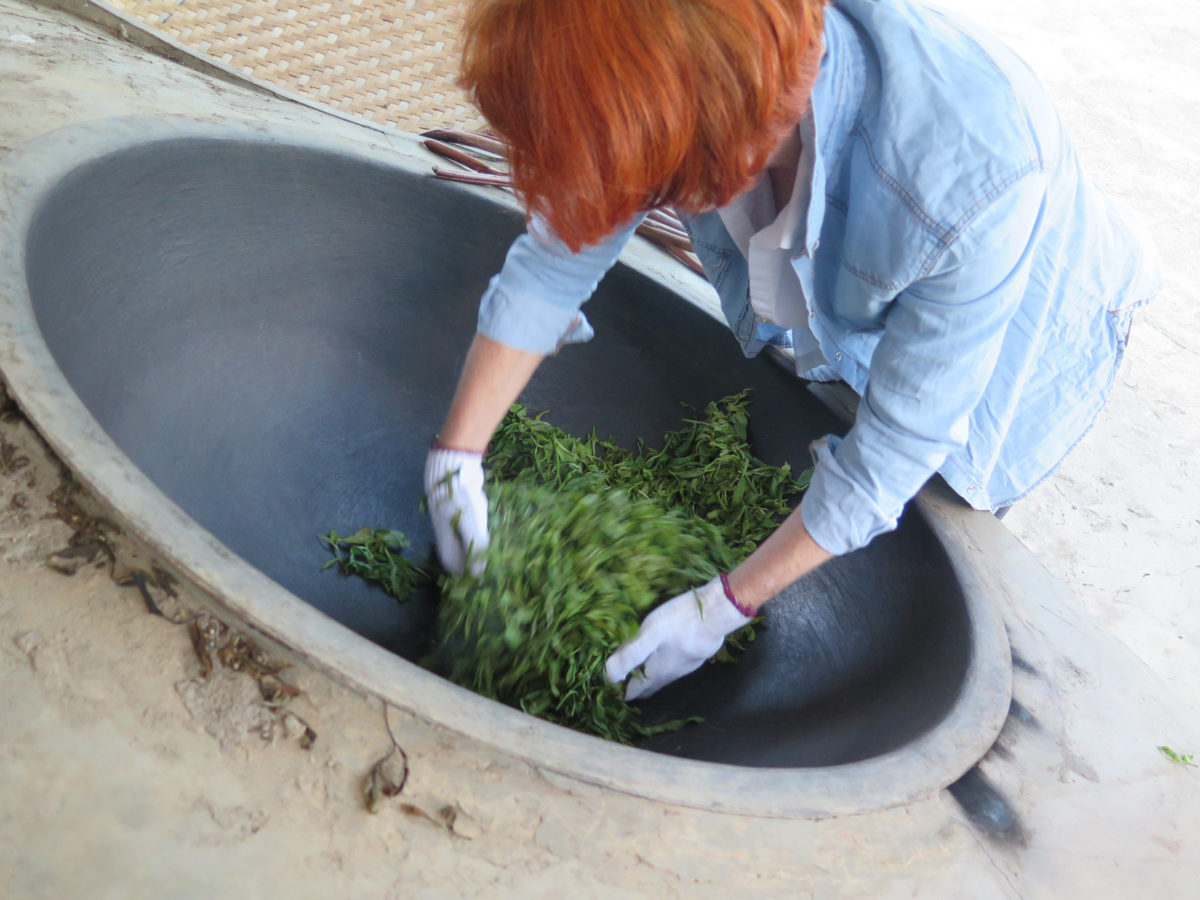
And today…
While continuing to travel in China, Katrin has extended her sourcing to Malaysia and her beloved Indonesia, where she helps producers make the qualitative shift that is essential for the survival of the country’s tea industry. At the same time, she has taken on a new challenge: to complete a Ph.D. on the Chinese origin of tea plantations around the world through its diaspora. She intends to demonstrate that the plantations developed outside China in the various colonies were developed with Chinese labor, Chinese seeds, and Chinese techniques. And among these former colonies in Indonesia, where most of the Chinese diaspora is from Fujian, the most crucial tea-producing province. In support of this thesis are the ancient tea trees that can still be found in some gardens that the Chinese planted for personal consumption when they arrived.
Surprisingly, this new field of exploration brings her back to the origins of her work on tea, that famous memoir she started as a student. Katrin realized when proposing her thesis topic that Professor Trolliet, through whom she had undertaken her first research work, was a great specialist in the Chinese diaspora. The circle is complete!
*The Peranakan are the descendants of Chinese immigrants settled in the former British colonies and, by extension, in those of the Netherlands.
Tea Market
Get More Value from Your Tea: BRU Maker One
+41794574278
Jacque's Organics
(647) 804-7263
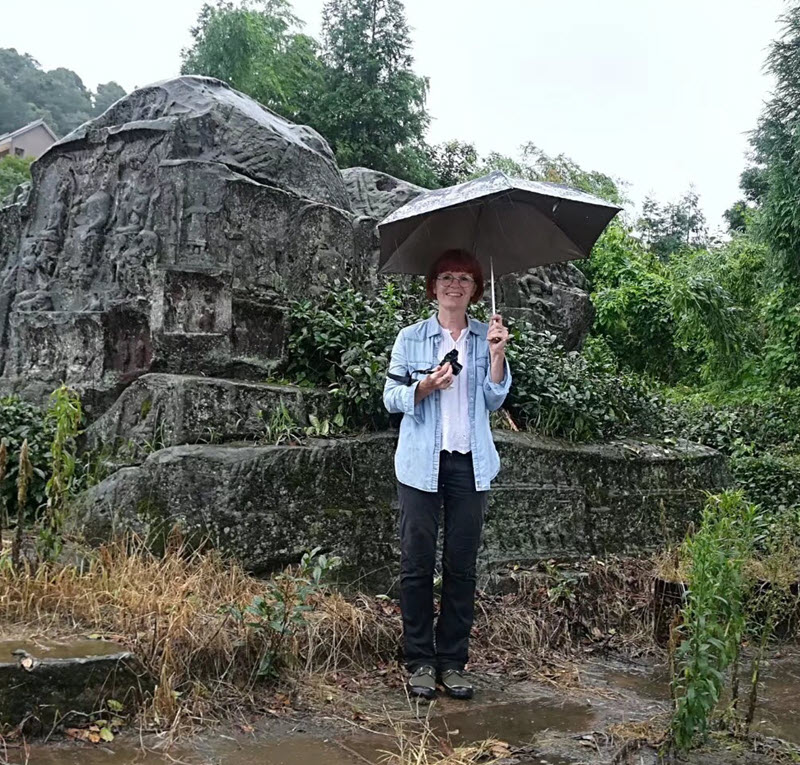
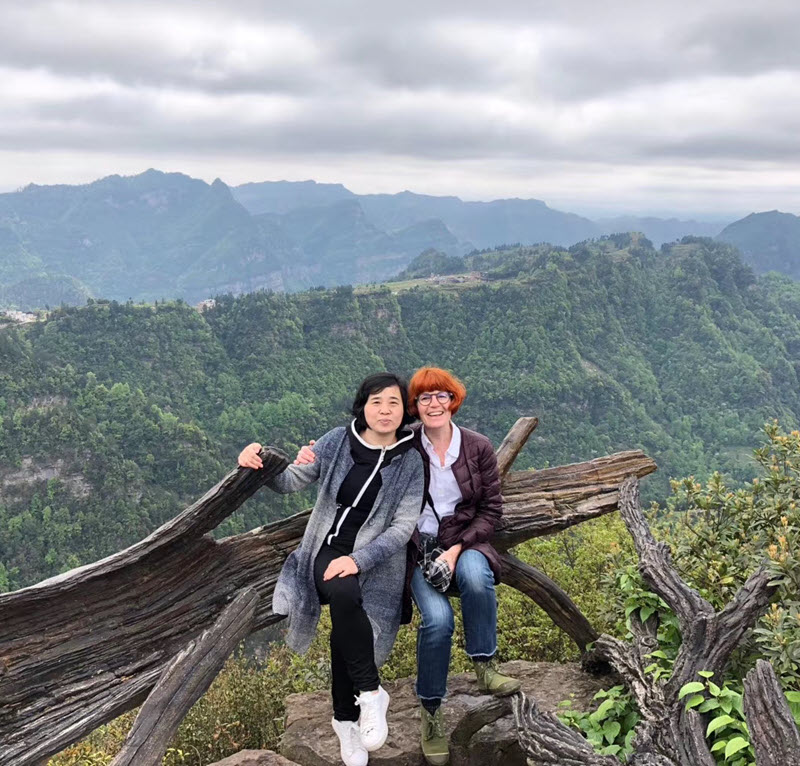
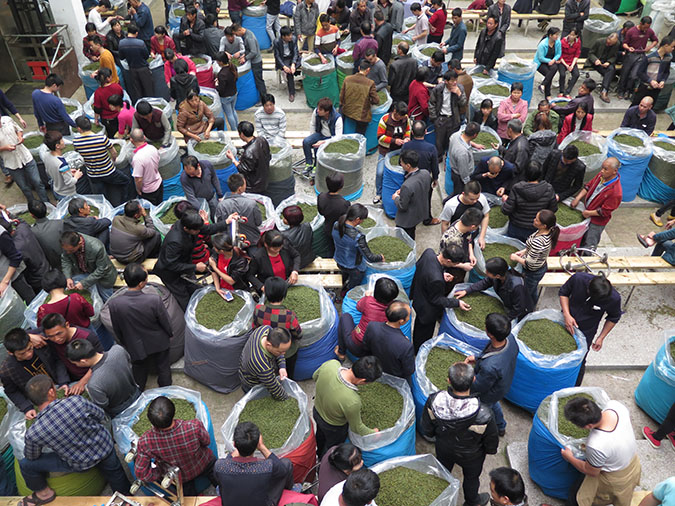
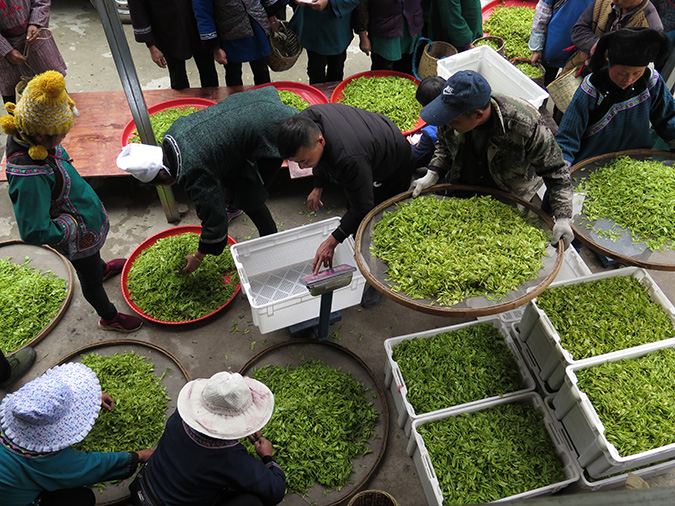
Merci, c’est vraiment une belle histoire,
je connais Katrin depuis longtemps,
mais sans savoir ces détails de son parcours exceptionnel,
formidable !
Merci beaucoup ! L’échange que nous avons eu était vraiment passionnant comme vous pouvez vous en douter.